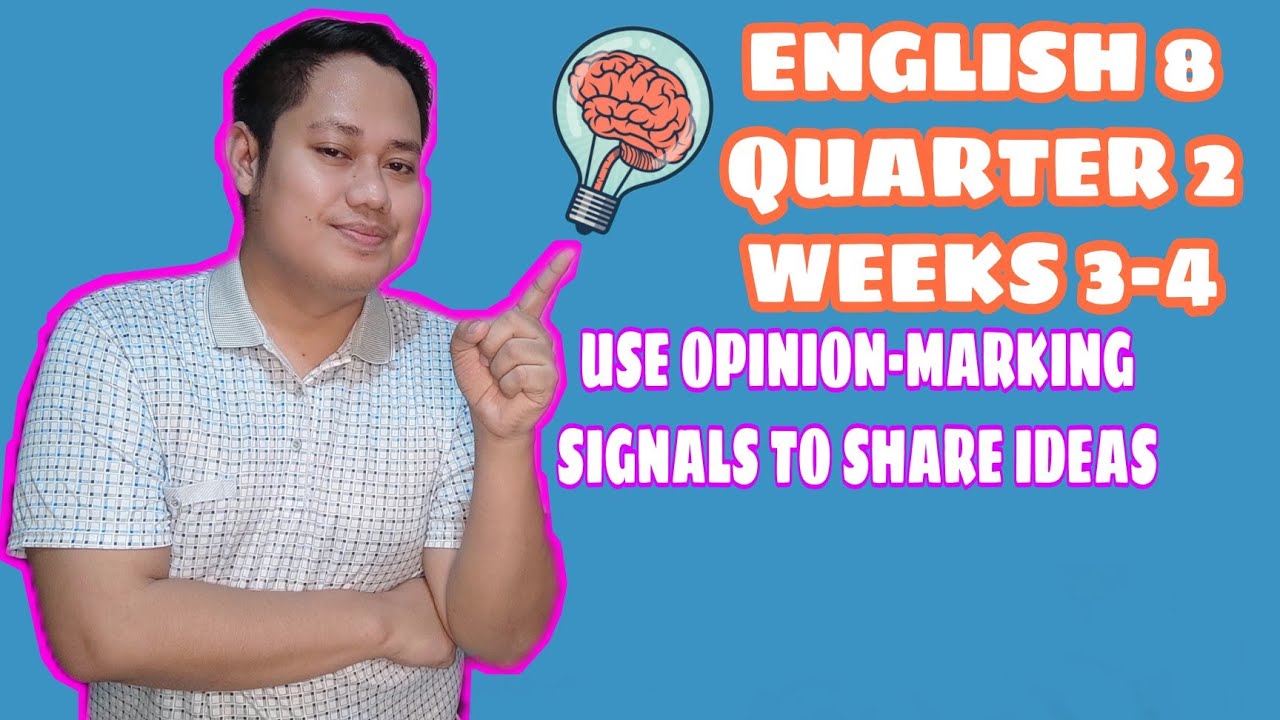TOPIK B : FAKTA DAN OPINI | BAB 3 | KELAS 6 BAHASA INDONESIA | SEMESTER 1
Summary
TLDRThis educational video for 6th-grade students explores the distinction between facts and opinions. It defines facts as objective, verifiable statements backed by evidence, such as the height of mountains or geographical data. In contrast, opinions are subjective views based on personal experience or feelings, like perceptions of weather or the price of tickets. The video provides clear examples of each, helping students understand the difference between information that can be proven and personal beliefs that cannot. This knowledge aids in interpreting news and information more critically.
Takeaways
- 😀 The lesson focuses on understanding facts and opinions in Indonesian language for 6th-grade students.
- 😀 Students will learn how to differentiate between facts and opinions using real-world examples.
- 😀 Facts are objective and can be proven with evidence or data that everyone agrees with.
- 😀 Example of a fact: Mount Semeru is the highest mountain on Java Island, proven scientifically.
- 😀 Facts are not influenced by personal feelings, and they remain consistent when verified.
- 😀 Opinions are personal views based on individual experiences or beliefs, not proven with objective data.
- 😀 Example of an opinion: 'Last night the rain was very heavy.' The interpretation can vary from person to person.
- 😀 Opinions reflect individual perspectives, like describing someone's hair as 'very thick' or a place as 'quite crowded.'
- 😀 The key differences between facts and opinions include objectivity versus subjectivity, and data-based versus feeling-based.
- 😀 The video encourages students to use their understanding of facts and opinions to analyze news and stories.
Q & A
What is the definition of a fact?
-A fact is information that can be proven true or false through evidence or objective data. Facts are objective and universally accepted when supported by proof.
How can facts be verified?
-Facts can be verified through scientific evidence, data, or objective sources that provide proof of their truthfulness.
What are some examples of facts mentioned in the video?
-Examples of facts include: 'Mount Semeru is the highest mountain in Java,' 'Mount Everest is the highest mountain in the world,' 'Semarang is the capital of Central Java,' and 'Asia is the largest continent in the world.'
What is the definition of an opinion?
-An opinion is a personal view or belief about a particular topic, based on an individual's experiences, feelings, or beliefs. Opinions are subjective and not necessarily backed by facts or objective data.
How do opinions differ from facts?
-Opinions are subjective and reflect personal feelings, beliefs, or judgments, while facts are objective, can be proven with data, and remain consistent regardless of individual perspectives.
Can opinions be proven true or false?
-No, opinions cannot be proven true or false because they are based on personal perspectives and experiences, which can vary from person to person.
What are some examples of opinions provided in the script?
-Examples of opinions include: 'The rain last night was very heavy,' 'The child’s hair is very thick,' 'The entrance ticket to Cel Beach is very expensive,' and 'The library was quite crowded today.'
What does it mean for a fact to be 'objective'?
-For a fact to be objective means that it is based on measurable, verifiable data and is not influenced by personal feelings or experiences. Everyone would agree on the fact if it is supported by evidence.
What is the significance of understanding the difference between facts and opinions?
-Understanding the difference between facts and opinions is important because it helps people critically evaluate information, particularly in media, to avoid confusion between objective truths and personal biases.
Why might the price of a ticket be considered an opinion rather than a fact?
-The price of a ticket is considered an opinion because the perception of whether it is 'expensive' or 'cheap' can vary from person to person, depending on their personal experiences and financial perspectives.
Outlines

This section is available to paid users only. Please upgrade to access this part.
Upgrade NowMindmap

This section is available to paid users only. Please upgrade to access this part.
Upgrade NowKeywords

This section is available to paid users only. Please upgrade to access this part.
Upgrade NowHighlights

This section is available to paid users only. Please upgrade to access this part.
Upgrade NowTranscripts

This section is available to paid users only. Please upgrade to access this part.
Upgrade NowBrowse More Related Video

Kurikulum Merdeka Rangkuman Bahasa Indonesia Kelas 7 Bab 6 Surat Pribadi dan Surat Resmi

ENGLISH 8 QUARTER 2 WEEK 3-4 USE OPINION-MARKING SIGNALS TO SHARE IDEAS

MENULIS ARTIKEL ILMIAH POPULER KELAS 8 BAB 3 BAGIAN 1

Kurikulum Merdeka Rangkuman Bahasa Indonesia Kelas 8 Bab 3 Menulis Artikel Ilmiah Populer

Kelas 12 - Teks Artikel - Mengontruksi Artikel Berdasarkan Fakta

Teks Rekon |Bahasa Indonesia Kelas IX| Kurmer
5.0 / 5 (0 votes)